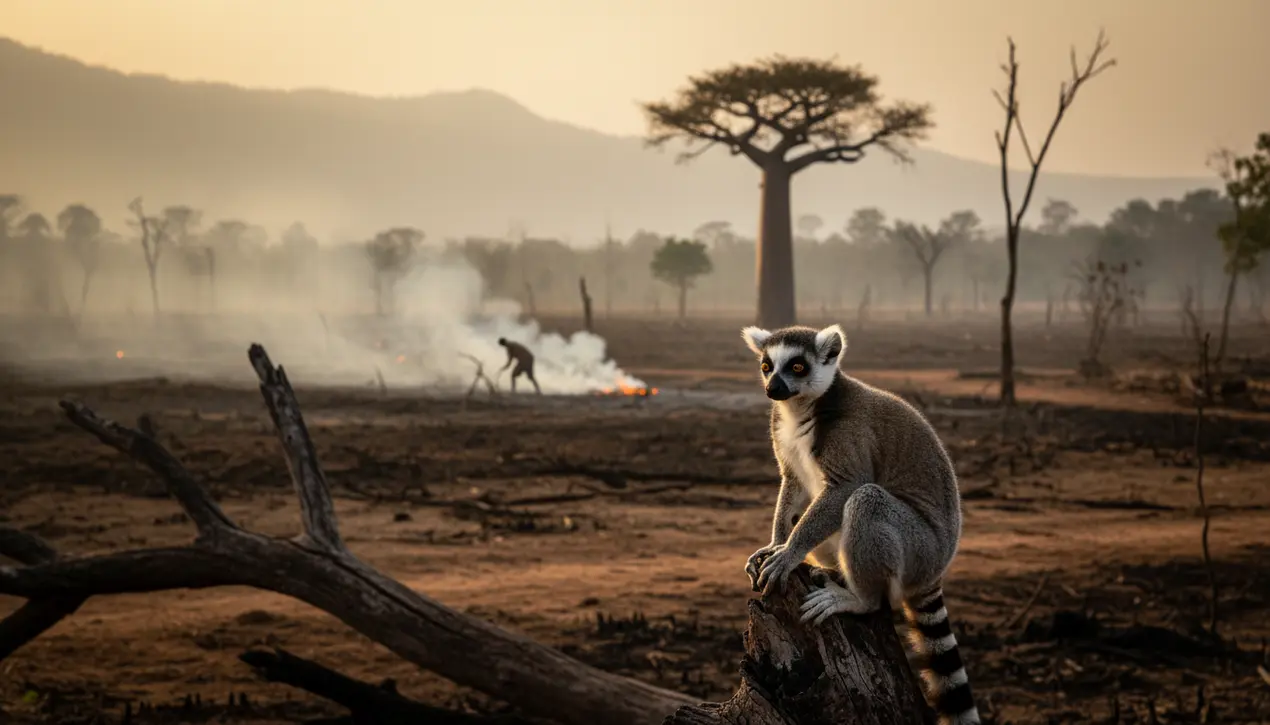
Scienceclimate scienceClimate Change
Vanishing wildlife in Madagascar highlights biodiversity crisis.
RA
Rachel Adams
1 hour ago7 min read1 comments
The island of Madagascar, long romanticized in Western media as a pristine sanctuary for eccentric wildlife, is confronting a biodiversity crisis of staggering proportions. This isn't merely a story of a few endangered species; it is the unravelling of an entire evolutionary ark, a place where more than 90% of its wildlife is found nowhere else on Earth.The iconic lemurs, those charismatic primates that have become synonymous with the island, are now almost universally threatened with extinction. The same grim fate stalks half of the world's chameleon species that call Madagascar home, and the island's iconic, stout-trunked baobab trees stand as silent sentinels over landscapes they once dominated.The crisis extends beyond the forests to the surrounding seas, where up to half of the live coral reefs have been lost, pushing reef-dependent fisheries to the brink of collapse. These catastrophic declines are rooted not in malice, but in profound human desperation.Madagascar is one of the planet's most impoverished nations, where 80 percent of the population survives on less than $2. 15 a day and nearly 40 percent of young children suffer from stunted growth due to malnutrition.In such a context, the environment becomes the primary, and often only, safety net. Forests are cleared for charcoal, a vital source of income, or for small-scale agriculture; coastal waters are overfished to feed families.This dependency creates a devastating feedback loop: as ecosystems degrade from relentless pressure, their capacity to support human life diminishes, which in turn forces even more intensive extraction. The underlying drivers are a complex web of political instability—evidenced by the recent military takeover following public unrest over economic stagnation—historical colonial legacies, and international aid structures that have failed to foster sustainable alternatives.Climate change further exacerbates these pressures, altering rainfall patterns and increasing the frequency of wildfires that threaten the last fragments of highland forest. Yet, within this bleak panorama, glimmers of resilient solutions are emerging.Conservationists and communities are piloting initiatives that directly link ecological health to human well-being, from community-managed marine protected areas that allow fish stocks to recover to reforestation projects that provide both habitat and sustainable income. The significance of these small-scale successes is monumental.As one field researcher noted, if you can devise a conservation model that works under the extreme socio-economic pressures of Madagascar, you have a blueprint that can work almost anywhere. The fate of Madagascar's unique biosphere is a stark test case for our global capacity to reconcile human development with planetary stewardship, a challenge that requires addressing the root causes of poverty with the same urgency we apply to saving species from the abyss.
#Madagascar
#biodiversity loss
#deforestation
#poverty
#conservation
#climate change
#featured
Stay Informed. Act Smarter.
Get weekly highlights, major headlines, and expert insights — then put your knowledge to work in our live prediction markets.
Comments
Loading comments...
© 2025 Outpoll Service LTD. All rights reserved.